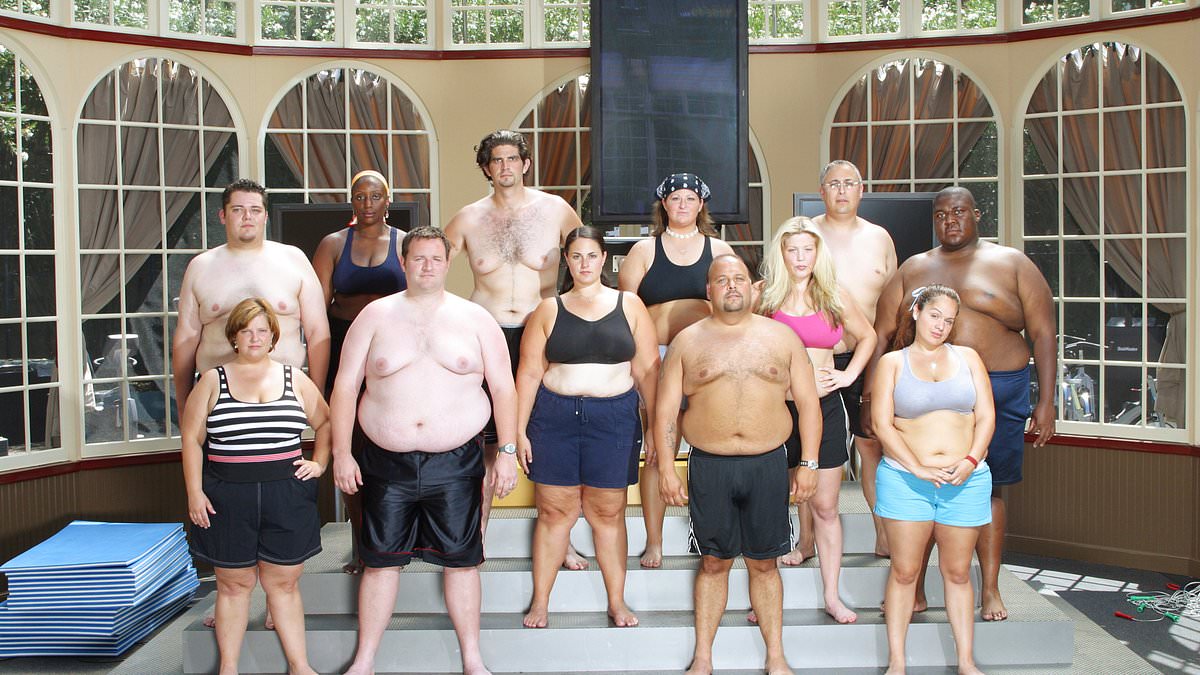
The world of reality TV often exposes contestants to extreme and unhealthy situations in the pursuit of entertainment, with weight loss competitions being a prime example. Netflix’s recent three-part docuseries, Fit for TV: The Reality of the Biggest Loser, delves into the harsh and often traumatic experiences faced by former contestants of the hit show The Biggest Loser.
The Shocking Truth Behind Weight Loss for Entertainment
The Biggest Loser, a show that aired from 2004 until its cancellation in 2016, pushed obese contestants to compete for a $250,000 cash prize by undergoing grueling physical exercises and adhering to severely restricted diets. Some contestants consumed as little as 800 calories per day while burning upwards of 6,000 calories in the gym. Despite the potential medical risks, producers prioritized creating ‘good television’ over contestant well-being.
Former winner Ryan Benson, who shed an astonishing 126 pounds to win the first season, has been outspoken about the severe physical and psychological toll the program took on him. Benson admitted his unhealthy methods to maintain weight, including extreme dehydration that led to urinating blood. Immediately following the show, he regained 30 pounds in just five days due to rehydration.
Exploitation Dressed as Inspiration
Now, 20 years later, Benson describes the long-term emotional scars he still carries. “It became all about winning,” he said. “I don’t know what they expected, but there were times I felt they wanted us to fail. We were definitely exploited.” This exploitation extended to their physical suffering and failure to address the mental health aspects of obesity.
Fitness coach Bob Harper, one of the show’s key figures, acknowledged the intense methods used, emphasizing that the visible gym sessions made for “inspirational and good TV.” However, this came at a significant cost for many participants, who dealt with not only weight regain but also long-lasting psychological challenges, including shame and guilt.
Moving Toward Healthy Weight Loss Strategies
Ryan Benson is now determined to focus on sustainable and healthier strategies to manage his weight, combining a balanced diet, a reasonable exercise routine, and the support of a solid network. This mirrors a critical understanding in modern weight management—that success extends beyond calorie deficits and gym hours to include mental well-being and realistic goals.
Nowadays, newer solutions such as weight loss medications like Ozempic and Mounjaro have arrived, promising rapid results. However, experts caution that these medications are not permanent fixes. A study on Mounjaro users revealed that participants regained nearly half the weight they had lost upon stopping the drug, a phenomenon attributed to “weight cycling.” This highlights the need for individuals to build sustainable, healthy habits alongside any weight loss treatments.
Products to Support Healthy Weight Management
For those seeking healthier ways to achieve weight loss and manage their overall wellness, consider meal planning tools like the NutraEase Calorie-Control Nutrition Planner. This system helps you track balanced meals and develop positive eating habits that align with realistic health goals.
The powerful lesson from Fit for TV: The Reality of the Biggest Loser is clear: the journey to health is far more than a number on a scale. It’s vital to prioritize mental health, avoid extreme techniques, and adopt long-term sustainable habits.
The documentary, which premiered on Netflix on August 15, serves as a cautionary tale for those chasing quick and dramatic transformations. It challenges us to look beyond entertainment value and reflect on the true meaning of health and wellness.



